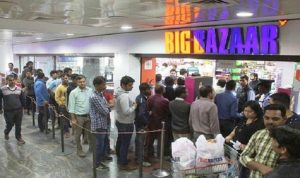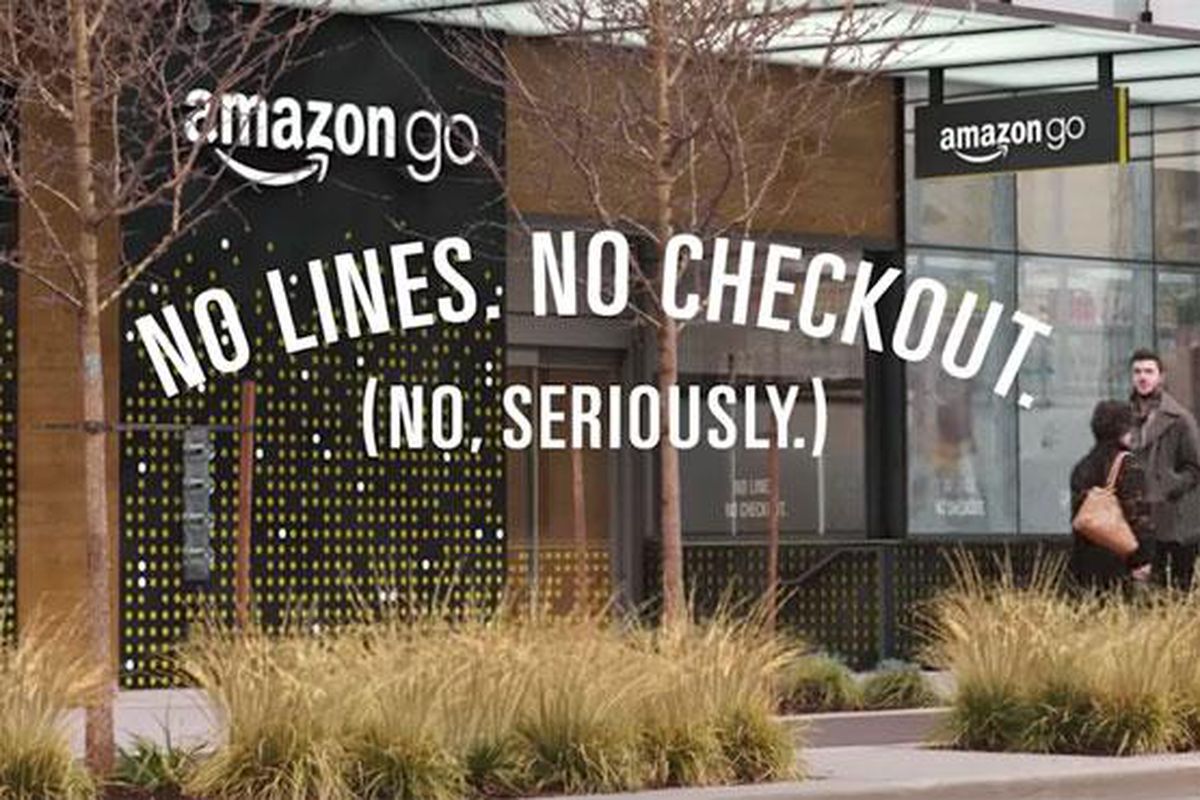Indian housewives look forward to Republic day (26 January), the first public holiday of the year. And this has got nothing to do with patriotism. In the days preceding Republic Day, the daily newspapers run full page ads for sales and shopping bargains. Indians are known to be highly value conscious and bargain hunters, whether at a swanky branded retail store or the vegetable vendor on the roadside. Naturally, everyone looks forward to the Big Bazaar sale, this time titled ‘Sabse Saste Din’ (the weekday that offers the lowest prices). A few days earlier, I read about the launch of Amazon Go store in Seattle. My family decided to visit the Big Bazaar store on 26 Jan, and during the visit I kept wondering how wonderful it would be if Big Bazaar emulated the Amazon Go model (Mr. Biyani, take note).

Queues at the Big Bazaar store
As we passed through metal detectors at the entrance of a Big Bazaar store, we were awestruck to see the crowds and the endless queues at the check-out counters. We took pity on the staff, who were on their feet all day. The aisles were jammed with shopping carts; it took some effort to walk around the store. A new visitor would be startled to observe the jostling crowds, wailing infants, long queues, and some boisterous customers. I reminded myself that it was a public holiday and families (like mine) were out in full force to get their bargain deals. But after a while, we gave up and decided to leave without buying anything. We concluded it was not worth standing for 30 minutes in a queue to pay for a few items. We could always shop for those another day.
Amazon Go
Amazon Go is a concept of the cashier-less store, devoid of POS machines and checkout operators. People walk into the store, pick up what they need, and then head straight for the exit, without the need to stand in long checkout queues. The store relies heavily on cameras, image recognition, artificial intelligence and sensors – technology to track who is shopping and what they buy. As shoppers walk out of the store, the transaction is completed with payment through an app.
That’s a lot of convenience for customers. But it also means job losses for retail workers.
It is frightening to think about the millions of retail jobs that will be lost if this concept is adopted by retail chains around the world. On the other hand, it will also create new kinds of jobs. People will be required to sort, tag and check labels on merchandise – or to restock shelves and check inventories. There will be jobs for people who manufacture or repair the cameras and sensors used in the store. These jobs will require new kinds of skills. People would need to work more closely with intelligent machines. And that’s why they need to reskill.
Online vs Offline
When e-commerce came to India lots of people with retail stores suffered loses. How could they keep up with the huge discounts offered online? Margins (and crowds) got thinner. There is also an on-going war between e-commerce companies and brick-and-mortar retailers.
But I believe there is room for both to co-exist.E-commerce companies are now opening brick-and-mortar ‘experience’ stores.
There are some things one can buy online, without thinking twice. And there are things that one needs to buy at a physical store. Online works well for electronic goods, for instance. But you would always want to visit a retail store to buy a pair of shoes or a saree. These are very personalized items, with consumers making highly specific decisions about colours, size, styles, textures, patterns etc. We just need to touch and feel to check the quality and the texture. And we can’t do that online (yet).
The hybrid model is what would really work here. Go to a store, experience the product, then come home and order the same online (to avail of the discount). I know friends who buy shoes that way.
But will retail concepts like Amazon Go work in India? I am not so sure. In India we have a problem of population and density. Technology would not be able to keep up with that. What works in the West need not necessarily work in India. Concepts need to be tested thoroughly in Indian environments and adapted for India.
Drone deliveries for pizzas will not work in India. You can imagine the worst (drone missing in action!).
What Big Bazaar could do (beyond crowd management) is to introduce hybrid models. Shoppers could visit the store examine the merchandise, and then order it using an app on their phones (from within the store). The orders could be delivered the next business day.
That would make our shopping experience more delightful!









